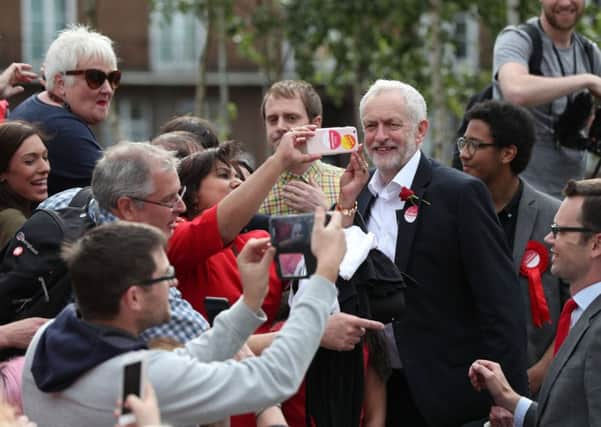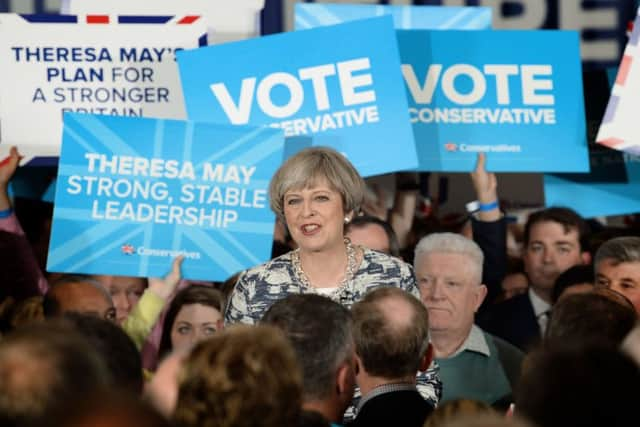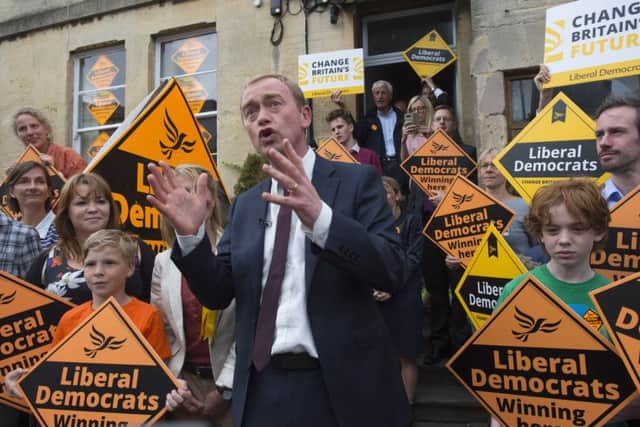Ben Lowry: Even if Corbyn loses badly, Labour's vote share seems set to rise '“ which would be a huge result for him


For months, even from before the election was called on Easter Tuesday, it was predicted that if a contest was held now then Labour might get its lowest share of the national vote in a general election in a century.
Polling and professional punditry all seemed to agree that Mr Corbyn was such a poor leader of the Labour Party that he would not even get as big a share of the vote as Michael Foot had done in Labour’s abysmal 1983 election.
Advertisement
Hide AdAdvertisement
Hide AdThat year the party got a mere 27.6% of the UK vote, which was so low that the SDP-Liberal Alliance almost polled as many votes (that result Illustrated the distortions of the first-past-the post system: Labour’s 27.6% share reaped 209 seats while the SDP-Lib’s 25.4% led to a mere 23 MPs).


Mr Foot’s left-wing manifesto, the one dubbed by Gerald Kaufmann ‘the longest suicide note in history’, was cited in the poor result.
Mr Corbyn, who was elected to the House of Commons that year, has been more radical than Mr Foot ever was.
His hardline views were blamed for the low Labour poll ratings, which in early April were below even the 1983 share, and which hovered around 25% at Easter.
Advertisement
Hide AdAdvertisement
Hide AdSuch findings explain why Mrs May was emboldened to call a snap election. But Labour polling has risen relentlessly since that decision.


From mid May, surveys have all put Mr Corbyn’s party above 30%. And over the last fortnight, Labour has not been below 35% and has been as high as 37%. Note that Tony Blair won a landslide in 2005 with only 35.2% of the vote.
In all of these polls the Conservatives have been ahead of Labour, and always over 42%, so there is little prospect of Mr Corbyn winning. But it is plausible that Mrs May could lose her overall majority.
If, as in some past elections, the Tory vote is being under-played then a landslide is probable. But even so, it now seems likely that Mr Corbyn will get a larger share of the vote than his predecessors Ed Miliband (30.4% in 2015) and Gordon Brown (29.0% in 2010) and possible that he will outstrip Blair in 2005.
Advertisement
Hide AdAdvertisement
Hide AdThe significance of this is diminished by the fact that others (Lib Dem, Greens, Ukip, etc) are well down in the polls, which means the two big parties can both poll much more than normal.


Mr Corbyn could lose emphatically and still be able to say that his leadership, far from being ‘disastrous’, has by some measures surpassed that of his predecessors.
If so it is a belated vindication of Mr Miliband’s instincts in keeping Labour’s manifesto left-leaning in 2015 on issues such as mansion tax and austerity because, he believed, voters had moved leftward since the financial crisis.
The key number to watch for in terms of Tory seats is 331. If Mrs May wins that she can say that the decision to call an election has increased her MPs (from 330 seats in 2015).
Advertisement
Hide AdAdvertisement
Hide AdEven if the increase in seats is modest, the party’s position will be much improved because they will not now have to face another election until well after Brexit in April 2019, bolstering Mrs May’s position.


If she wins enough to get a majority 326, but less than the 330 she had, the prime minister will be badly wounded.
And if she loses an overall majority, even if only just, and has to depend on (for example) unionist MPs to survive, she might feel that her calculation to call the election was so misjudged that she has to resign.